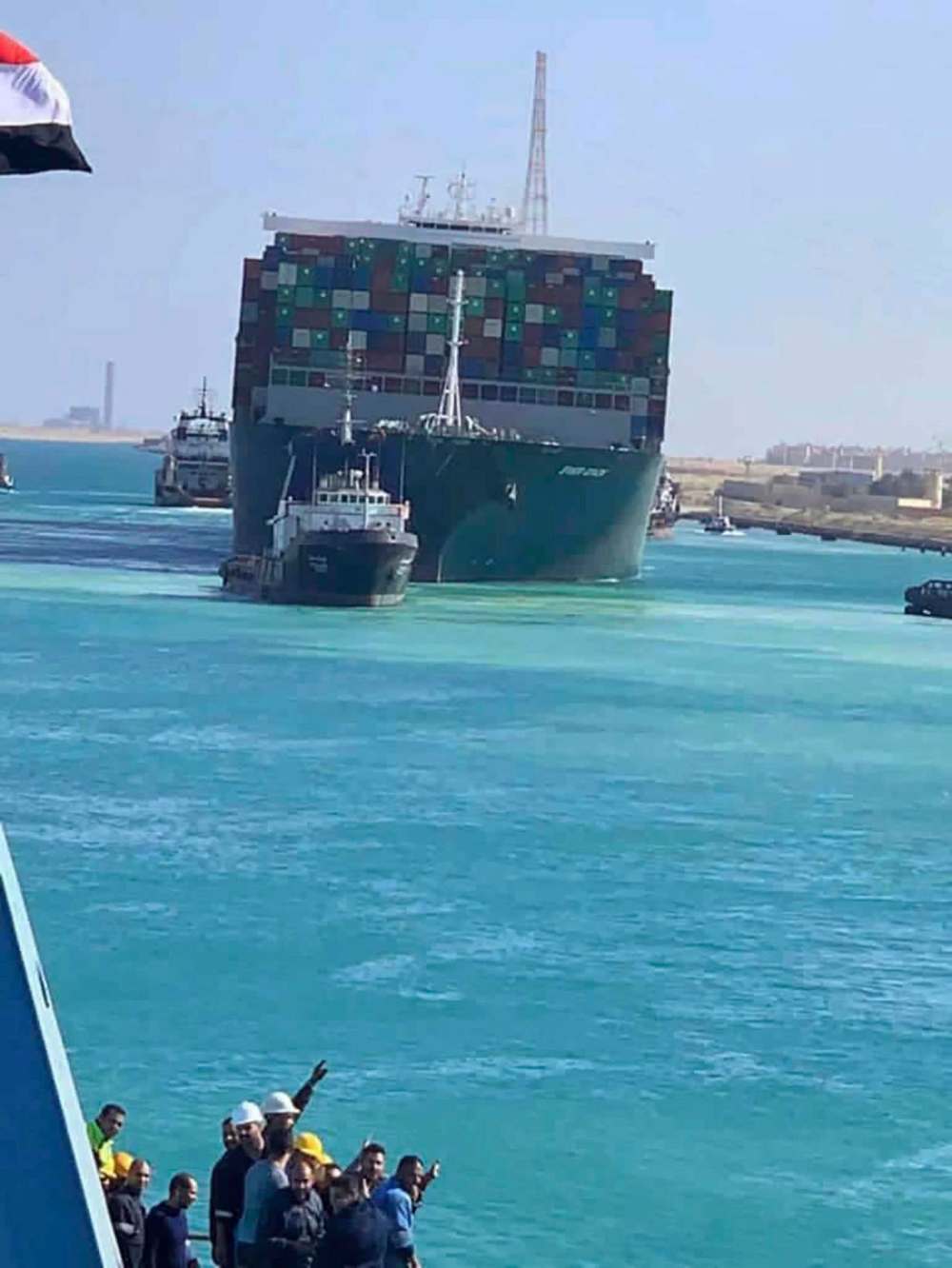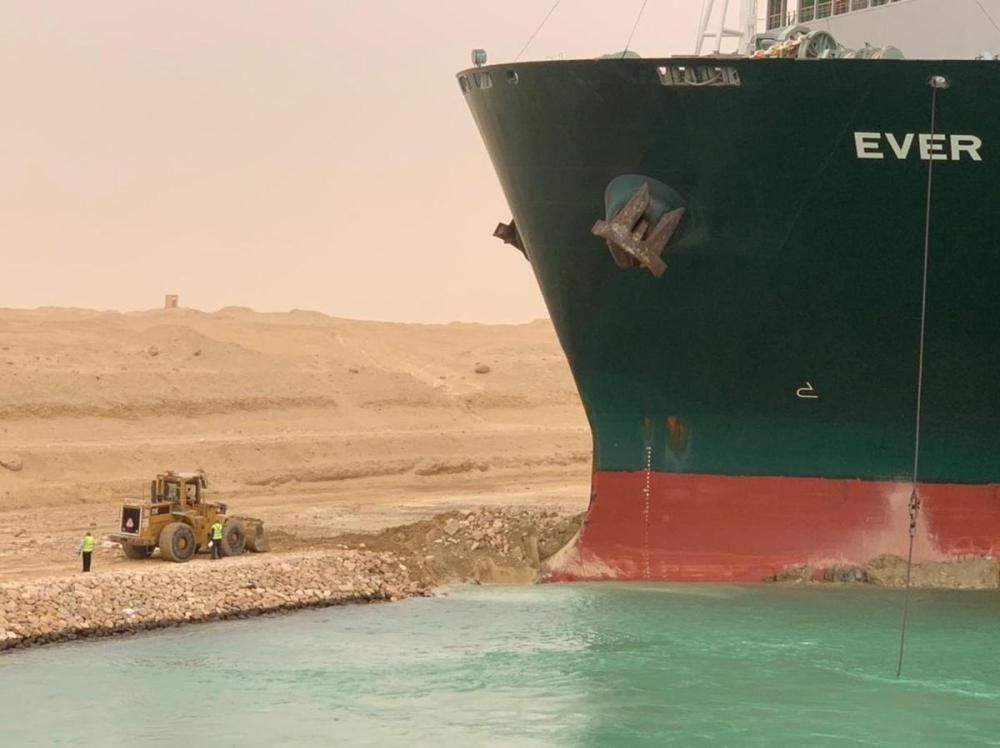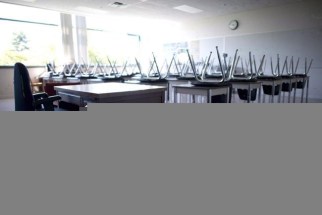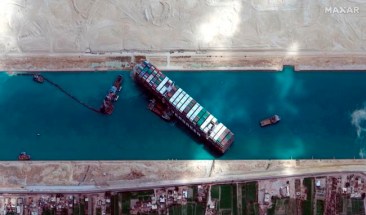Canal calamity highlights fragility of transport
Read this article for free:
or
Already have an account? Log in here »
To continue reading, please subscribe:
Monthly Digital Subscription
$0 for the first 4 weeks*
- Enjoy unlimited reading on winnipegfreepress.com
- Read the E-Edition, our digital replica newspaper
- Access News Break, our award-winning app
- Play interactive puzzles
*No charge for 4 weeks then price increases to the regular rate of $19.00 plus GST every four weeks. Offer available to new and qualified returning subscribers only. Cancel any time.
Monthly Digital Subscription
$4.75/week*
- Enjoy unlimited reading on winnipegfreepress.com
- Read the E-Edition, our digital replica newspaper
- Access News Break, our award-winning app
- Play interactive puzzles
*Billed as $19 plus GST every four weeks. Cancel any time.
To continue reading, please subscribe:
Add Free Press access to your Brandon Sun subscription for only an additional
$1 for the first 4 weeks*
*Your next subscription payment will increase by $1.00 and you will be charged $16.99 plus GST for four weeks. After four weeks, your payment will increase to $23.99 plus GST every four weeks.
Read unlimited articles for free today:
or
Already have an account? Log in here »
Hey there, time traveller!
This article was published 29/03/2021 (1715 days ago), so information in it may no longer be current.
Salvage crews dredged and hauled for days on end. On Monday they freed the Ever Given, the gigantic container ship that ran aground in the Suez Canal last Tuesday. Cargoes that were held up by closure of the canal will reach their destinations a few weeks late. Merchants and manufacturers who have relied on just-in-time delivery may have to think again about the logic of shopping for bargains halfway around the world.
Seaborne freight traffic has increased steadily since the logic of globalization won wide acceptance in the 1990s. The cargo capacity of the world shipping fleet roughly doubled from 1990 to 2009, and continued increasing through the last decade because the share of world trade carried by sea has kept rising. India and China draw raw materials from across the globe and ship manufactured goods back to Europe and North America.

The system works pretty well while the trade routes remain open. Last week the world learned it just takes one slip-up by one Taiwanese-owned container ship midway through the Suez Canal, and suddenly Europe-Asia trade is paralyzed. By the time the salvage crews got the vessel moving again, about 450 ships were queued up waiting to pass through the canal.
They will all arrive a couple of weeks late, some of them in ports jammed up with a surge of traffic. Others diverted by way of the Cape of Good Hope, will add about 10 days to their voyage. So much for just-in-time.
One immediate effect may be that some retailers will quickly run out of imported merchandise. Customers will have to accept locally made goods, even at higher prices, because the imported goods are still on a ship somewhere out at sea.
Globalization has been under attack for years. Donald Trump won the U.S. presidency in 2016 by complaining about the loss of U.S. manufacturing jobs to Mexican and Chinese competition. Critics on the left have also complained that globalization enriches the richest people and impoverishes the poorest. American voters kicked Mr. Trump out of office after one term, but Joe Biden, his successor, has shown little interest in lowering trade barriers and resuming the drive to increase his country’s reliance on foreign markets and foreign sources of supply.

In this context, the Ever Given’s mishap in the Suez Canal inflicts another dent in the hull of the good ship globalization. The Suez Canal Authority has said high winds and a sandstorm were part of the reason why the 200,000-tonne vessel ran aground, though an investigation would be needed to establish the whole story.
The canal was expanded with the addition of a second channel that opened in 2015, because more vessels were trying to use it and vessels were larger than ever. But even so, a sandstorm can close it down for a week.
The Suez Canal itself has little effect on Canada’s foreign trade, but the efficiency of gigantic container ships and tankers is crucial to Canada’s hopes of finding new markets in Europe and Asia and reducing its dependence on the U.S. The Ever Given mishap should warn Canada that as ships get larger, the impact of a single mishap grows larger in the same proportion. We may be approaching a limit to the gains in efficiency that can be achieved by larger vessels and more off-shoring.















